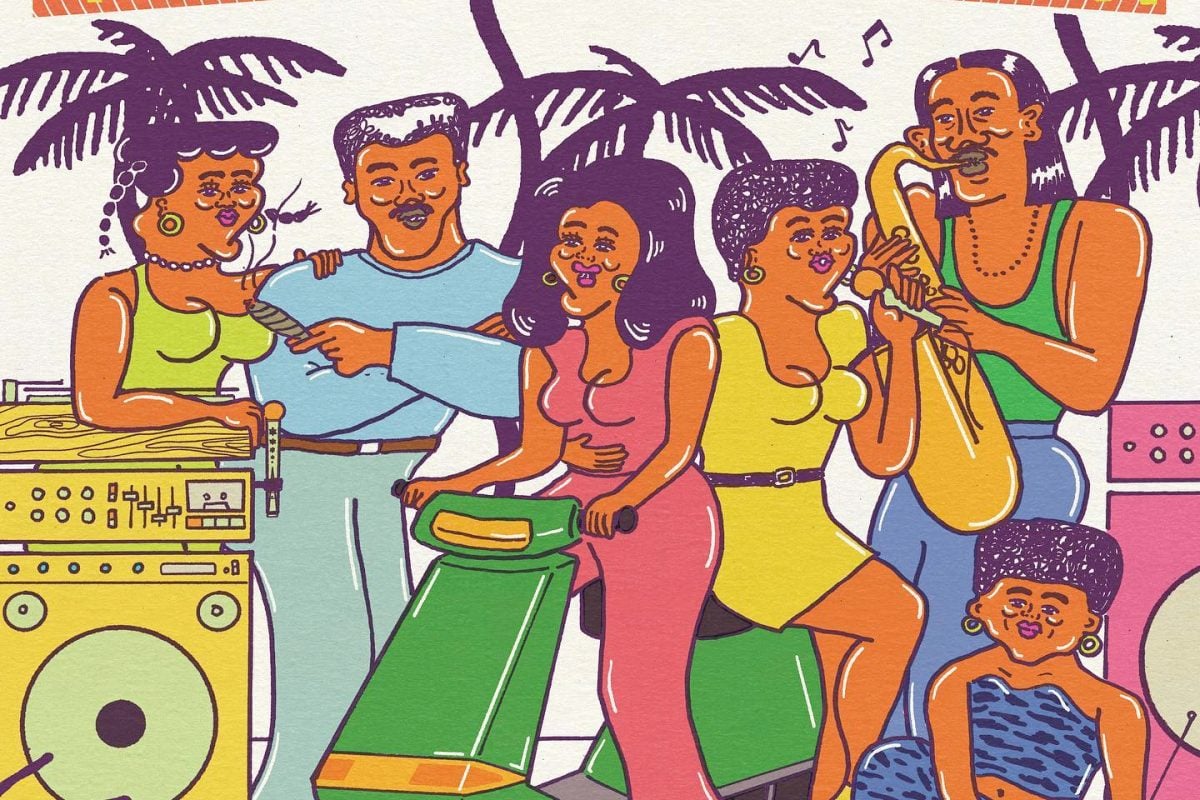Japanese Reggae Compilation Album “Tokyo Riddim 1976-1985” Set For Release In September

London-based reissue label Time Capsule Records has announced that it will be releasing a Japanese reggae compilation album come September, which forms part of its Nippon Series, “a loose series of compilations exploring different musical scenes from Japan between the 1970s and 1990s”.
According to the label, the production, titled Tokyo Riddim 1976-1985, captures what it describes as “the moment J-reggae entered the broader public consciousness, merging commercial city pop style with an infectious backbeat.”
The album’s songs were curated by cassette and record-pressing company Qrates, and Time Capsule and is now available now for preorder.
“The London-based #reissue label’s compilation captures the moment when reggae gained popularity in Japan in the late 1970s and ’80s, featuring overlooked tracks from this era,” the company noted on Instagram.
“Instead of directly emulating Caribbean island’s styles, Japanese producers and artists drew inspiration from the accessible sounds of UK bands like The Police and UB40, blending reggae with #cipop and #newwave… Part of Time Capsule’s #NipponSeries —exploring various Japanese musical scenes from the 1970s to the 1990s—the songs on “Tokyo Riddim 1976-1985” demonstrate the indirect and creative ways in which musical styles blend, resulting in something beautifully unique,” it added.
In describing the album, the company said that it will only be released on vinyl and as a full album download (no streaming).
It noted that the cover art was illustrated by Fukuoka-based Japanese artist Nonchelee and “pays homage to the iconic Dancehall album art by Jamaican artist, Wilfred Limonious, who is considered by Jamaicans to be the “father of Dancehall art”.
In a release, Qrates, noted that while “the smooth and funky sound of prime-time Japanese reggae pop in the 1970s and ‘80s, fired up an obsession with Jamaican music that persists to the present day”, “the story of Japanese reggae is not a linear one”.
It noted that the music Tokyo Riddim 1976-1985 “captures the moment J-reggae entered the broader public consciousness, merging commercial city pop style with an infectious backbeat, that has drawn comparisons with the emergence of Lovers Rock in the UK”.
“If there is a year zero for the introduction of reggae music to Japan, you’d be forgiven for thinking it was 1979 when Bob Marley and the Wailers toured the country, trailed by an entourage of journalists, photographers and fans ready to spread the message of the music into all corners of Japanese society,” the release noted.
“Rather than look directly to Jamaica, many producers and artists in Japan were inspired instead by the more approachable sounds of The Police and UB40, their reggae fix arriving pre-filtered through the lens of new wave pop from the UK. Playful and groovy, these album deep cuts have been overlooked for too long,” it added.
In describing the songs on the seven-track album, Qrate noted that among the artistes are Miki Hirayama, whom it describes as “the idol singer who borrowed the bassline from Bob Marley’s Natural Mystic on the track Denshi Lengi” and “Chew Kosaka, who headed to Hawaii to cut the Jimmy Cliff-inspired Music.
It also listed Marlene, “the Philippine songstress whose cover of Roberta Flack’s ‘Hittin’ Me Wear It Hurts’ owed much to her producer’s obsession with Sly & Robbie’s Compass Point sound” and others.
Album tracks:
1. Miki Hirayama – 月影の渚 (Tsukikage No Nagisa) 2. Miki Hirayama – 電子レンジ (Denshi Lenzi)
3. Chu Kosaka – Music
4. Izumi “Mimi” Kobayashi – Lazy Love
5. Junko Yagami – ジョハナスバーグ (Johannesburg)
6. Miharu Koshi – コーヒーブレイク (Coffee Break)
7. Marlene – Hittin’ Me Where It Hurts
8. Lily – 天気になあれ (Tenkini Naare)
